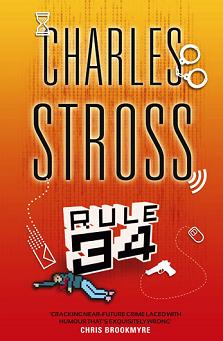For the second year in a row Niall Harrison has looked at the gender balance in science fiction/fantasy reviewing, looking at both which books were reviewed and who reviewed them, for a range of sf and fantasy outlets. A month ago, Renay at Ladybusiness did the same for individual bloggers, which in turn inspired Martin Lewis to take a look at his own output, which prompted me to do the same.
As you know, last year I made an effort to read more female sf writers, both by picking a reading list at the start of the year as by in general paying more attention to female writers. As you may also know, I try and review everything I read, though I don’t always succeed; I’ve read some hundred books last year and wrote only fiftytwo reviews, not all of books finished that year. But of those fiftytwo reviews, it turns out twentyseven, or roughly fifty percent were by female authors. Slightly more than a third of those (twelve) were the books I’d put on my reading list; the rest are not just fantasy and science fiction, but also include a fair few history books.
Why is this important? Because obviously, if you agree that a rough gender balance in science fiction and fantasy is a good thing, just reading more female writers is not enough, you also need to talk more about them too. One of the perennial problems with female writers after all has been that their contributions to the genre have often been overlooked, ignored or minimised. Getting more people to review them is a first step to put this right.
Below is the complete list of reviews:
- 29-12-2011: added Medieval Warfare
- 11-12-2011: added Spirit
- 29-11-2011: added No Present Like Time
- 23-11-2011: added Indo-Roman Trade
- 21-11-2011: added Trouble and Her Friends
- 17-11-2011: added Europe after Rome
- 06-11-2011: added Omnitopia Dawn
- 16-10-2011: added Temeraire
- 03-10-2011: added 10,000 Light-Years from Home
- 29-09-2011: added The Wars of the Roses
- 13-09-2011: added The Best of C. L. Moore
- 28-08-2011: added A Civil Campaign
- 27-08-2011: added Trading in Danger
- 21-08-2011: added Golden Witchbreed
- 07-08-2011: added A Point of Honor
- 03-08-2011: added Sheepfarmer’s Daughter
- 31-07-2011: added The Halfling and Other Stories
- 22-07-2011: added Bold as Love
- 08-07-2011: added The Early Middle Ages
- 28-06-2011: added Lightborn
- 06-06-2011: added The Sword of Rhiannon
- 25-05-2011: added Foreigner
- 15-05-2011: added China Mountain Zhang
- 08-05-2011: added Early Medieval Settlements
- 03-04-2011: added The Female Man
- 03-02-2011: added Among Others
- 30-01-2011: added The Left Hand of Darkness
As for 2012, so far I’ve continued striking the right balance: of the twentyone reviews to date, eleven were of female writers.
